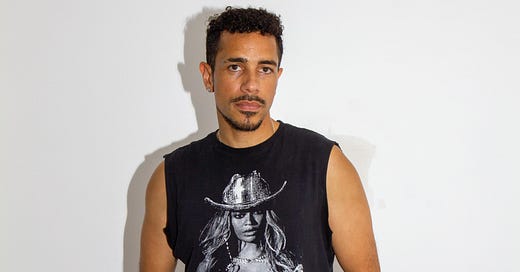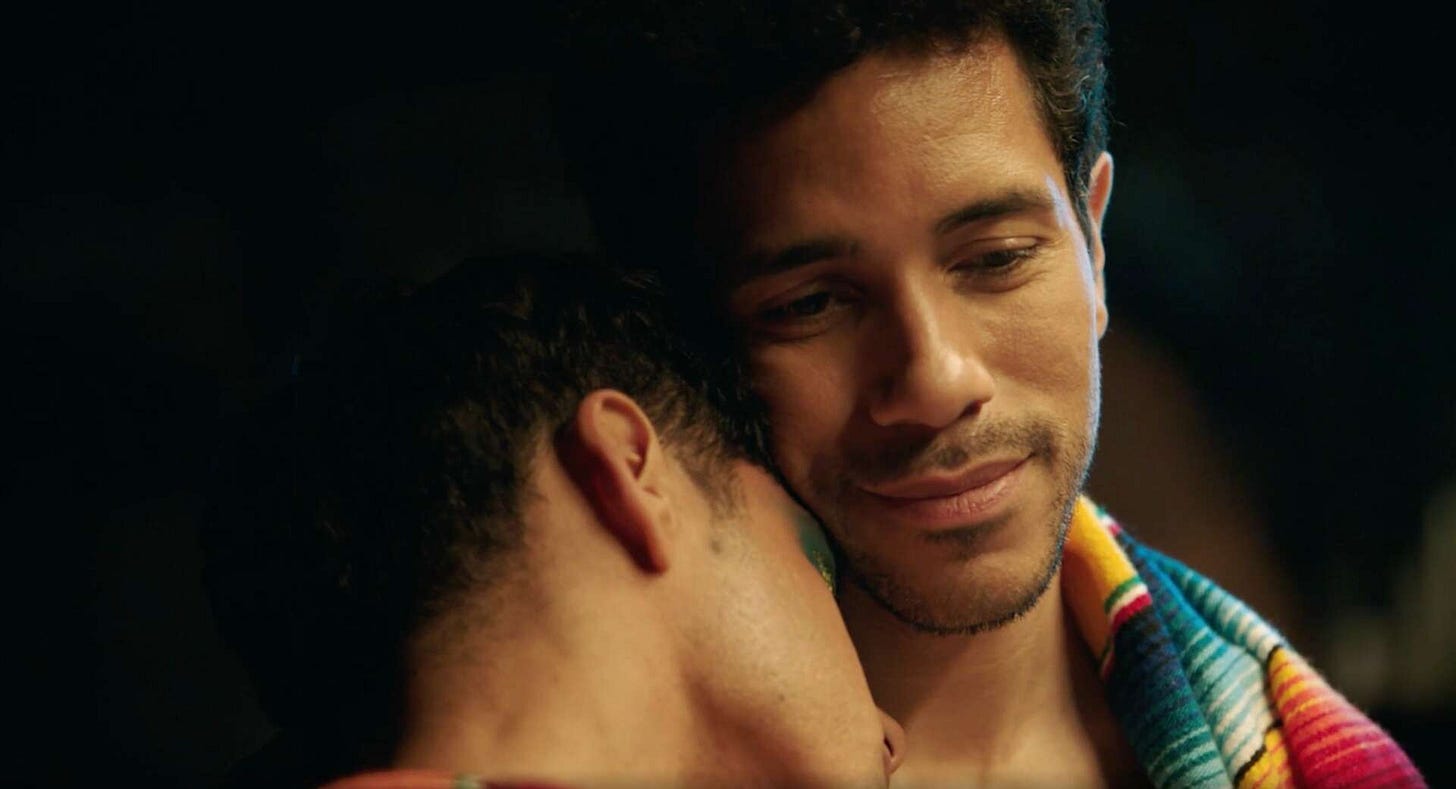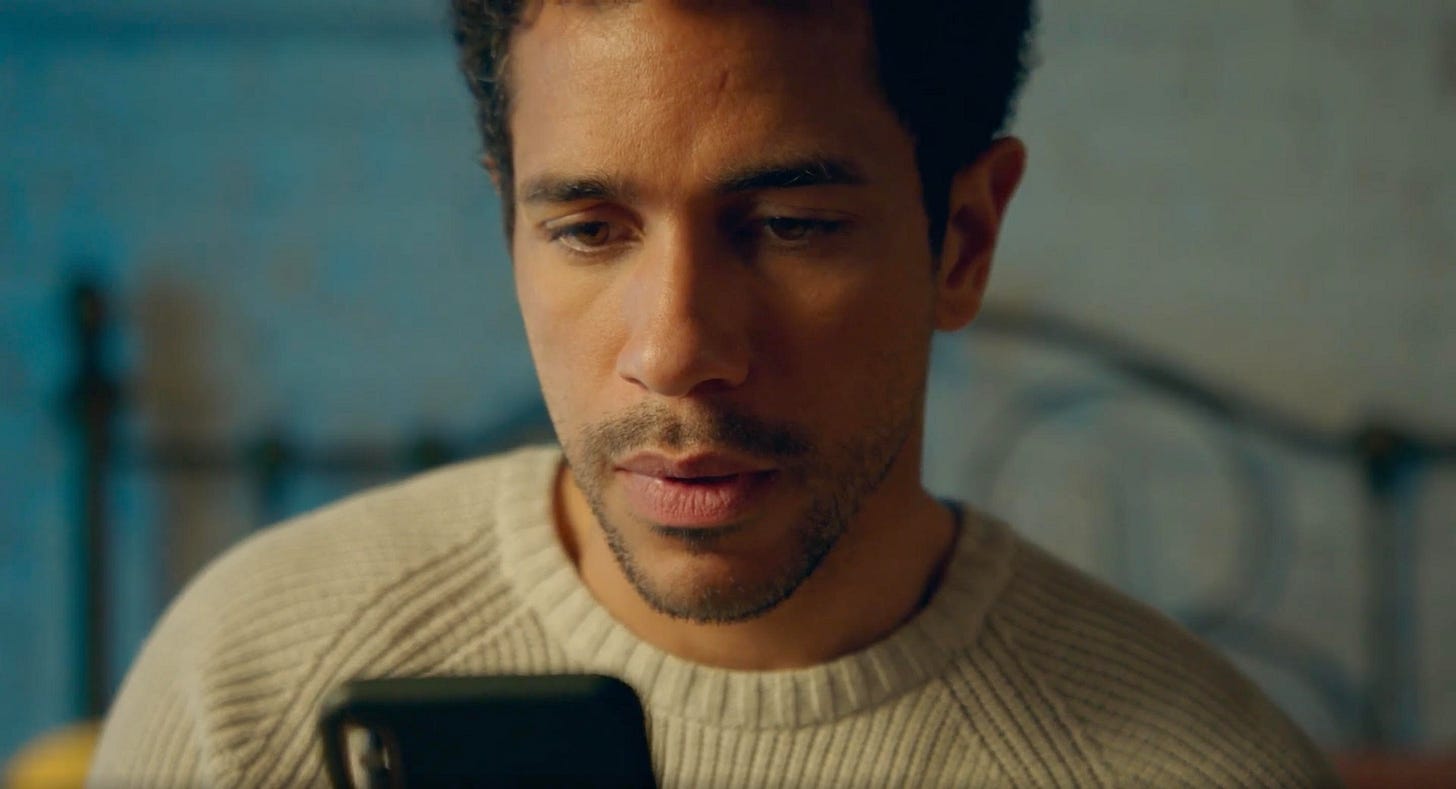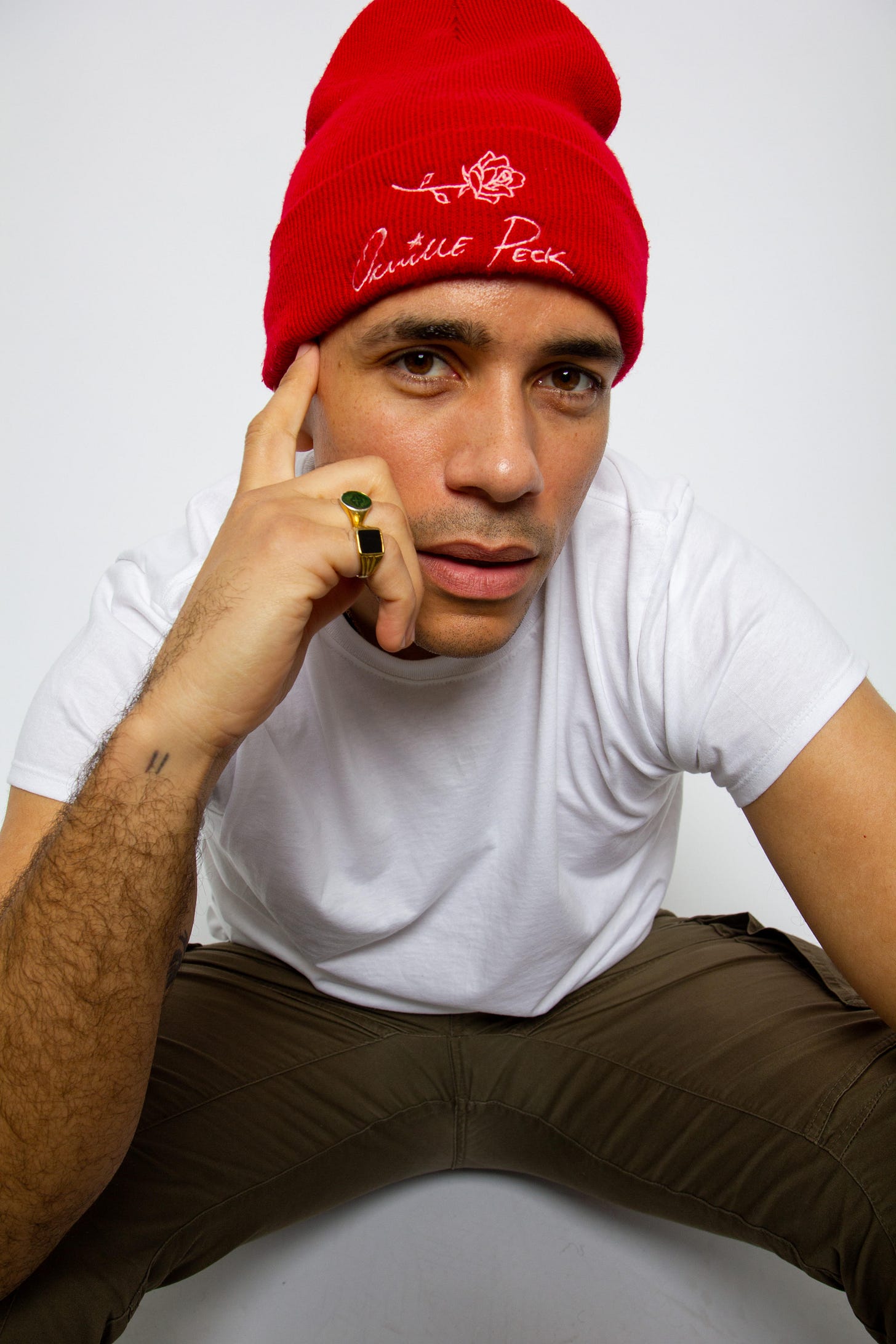Processing: Devon O'Kane on overcoming heartbreak
and what is next for his web series, Handsome.
Devon O'Kane is a film fanatic! Some of his all-time favorites include classics like Pulp Fiction, Baz Luhrmann’s Romeo + Juliet, Larry Clark’s Kids, Desperado, and My Own Private Idaho. We recently caught up with him to talk about what inspired his pandemic-era web series and why he’s prioritizing his mental health before starting a sequel.
WC: You launched a web series in 2021, Handsome, about a 30-year-old queer man reentering the dating scene after ending a 10 year relationship. What was your approach in creating the series?
Devon: I originally created Handsome as a way to process my life in the wake of a breakup. At the time, I didn’t fully grasp how significant that relationship was. We had been together for 10 years, and after moving from Toronto, my hometown, to Los Angeles and securing my green card, we broke up by May 2020. That summer I moved to a new apartment in Eastside L.A.
Living on my own for the first time as an adult, I felt very lonely. But it wasn’t all sad—to be honest everyone was isolated in their own way during the pandemic. I felt free in some ways, like I could finally breathe after what seemed like 100 years of dating someone. I was happy in my bachelor pad, using a Mr. Coffee box as my nightstand.
Eventually, boredom crept in, and I decided to visit a friend who had just moved to Denver. One night, she convinced me to try Grindr for the first time. Suddenly, I was scrolling through dick pictures of headless torsos. It was there in Denver that I had my first post-breakup hookup. I met a guy at the park and drove to a parking lot under an overpass where we exchanged head.
When I got back to LA, I opened the app again, but something felt off—the app felt more toxic. It wasn’t long before I had a complete breakdown—I was dealing with depression, anxiety, and constantly talking to friends, trying to figure out what was wrong with me and why I couldn’t connect with men on Grindr. It goes without saying, that I had never used the app before. My ex and I started dating when Grindr was just becoming popular, so I didn't try it—until now.
During this experience, I developed a psychosis I wasn't aware I had - a list of insecurities that would only worsen with more exposure to hookup culture.
It wasn’t all bad, but it certainly wasn't all good.
That’s how Handsome came to be. I was overwhelmed with emotions and decided to write a pilot episode, starting with what I thought was the beginning—but, ironically, it was the end of my relationship. From there, I set out to capture the wild journey of trying to find love again. What I didn’t realize was that it would turn into a deeper journey of self-discovery.
WC: It’s impressive that you’ve taken to writing, directing, and acting. How do these three creative synergies blend? Which one do you prefer?
Devon: I always knew I wanted to be an actor. In tenth grade, my drama class got a visit from the casting director of Degrassi, who was scouting for raw talent. They came to my school, which was in the roughest part of town—Jane and Finch, one of the most dangerous intersections in Canada. They were looking for someone “hood.” But what they didn’t realize was that while I might’ve looked the part—being half-Black and poor—I was also sensitive and still closeted. Despite that, I must’ve had some skills because I made it through the first round of auditions and even got to a chemistry test with the lead actress. That’s probably where it fell apart—I thought she was pretty, but there was no real attraction, and we both knew it.
My brother’s father, who helped raise me, worked as a driver on movie sets, shuttling celebrities around when they were in town. He would always tell me stories like the time Keanu Reeves slept in and couldn’t be woken up. I even got to meet Steven Seagal when he was filming Exit Wounds in Toronto and got an autograph from Jackie Chan, my childhood hero, while he was working on The Tuxedo. Being around actors, even indirectly, made me feel like acting was something I could do too.
What really captured my interest, though, was the filmmaking process. I was always fascinated by what went on behind the scenes. Whenever I got a DVD, I had a ritual: 1) watch the movie, 2) listen to the director’s commentary, and 3) watch all the behind-the-scenes footage. Practicing this routine helped me gain more insight into filmmaking, and helped me put myself in the director's shoes. I started understanding films from the inside out and sought out more obscure movies like The Basketball Diaries with Leonardo DiCaprio, Running Scared with Paul Walker, and even Showgirls. I’d often make my friends watch these films with me, and I loved seeing them gag at the content that pushed the boundaries of what they thought a movie could be.
WC: And what about your writing?
When it comes to writing, it's something I've always naturally been good at. Not to brag, but I want to give credit where it's due. I remember in high school, my photography teacher gave us an assignment to write a short story based on a photo he chose for each of us. I got a picture of a judge holding a gavel, and while I don’t remember the story, I do remember getting an A+. That’s when I realized I had a knack for writing. This love for language even extended to French, which I studied simply because I was drawn to the beauty of it. In university, I was immediately pulled into my English classes, reading classics like Waiting for Godot by Samuel Beckett and Heart of Darkness by Joseph Conrad—which I read twice because I wanted to understand the complexity of the language so badly (followed by the film, Apocalypse Now, of course). Shortly after, I discovered the Beat Generation and the queer, rebellious nature of their writing. It started with Jack Kerouac’s On the Road and led me to writers like Allen Ginsberg and William S. Burroughs, which really opened my eyes to what queer literature and art could be.
Writing has always been a huge part of my life. I’ve got stacks of journals at home, some dating back to high school. Actually, the first time I was ever outed was because of one of those journals. It happened during a high school trip to Europe when a girl who had a crush on me found my journal and read it to the class. Of course, I was writing about a boy I’d met on an early hookup site called Face Party. I was embarrassed at the time, but looking back, I can’t imagine how embarrassed she must’ve felt realizing her crush didn’t feel the same.
If you like what you’re reading, please consider subscribing to our newsletter’s paid version. Paid subs allow us to keep Internet Cafe paywall-free.
WC: Are you working on the second season of Handsome? What can we expect from the sequel? When does it come out?
Devon: The sequel is still a work in progress. Due to some personal challenges, including another breakup, it has been tough to work on it. While my first breakup was inspiring, the second one was crushing—filled with gaslighting, mental health struggles, and a strong loneliness I hadn’t felt before. I was also facing my own mental health battles and a period of drug abuse, which I’ve worked hard to overcome.
I’m in a better place now. Although there’s no romantic love in my life, I’ve found healing through strong platonic relationships. I still long for romantic love (my therapist says I thrive in relationships), and as I continue my search, I hope to pick up the pen and continue with Handsome season 2...and 3.
Yes, from the start, I envisioned this as a trilogy (I’m not all doom and gloom, I promise).
The story is there, waiting to be told, but I also want to evolve how I tell it. There are some cinematic influences that I’m eager to explore—specifically Pedro Almodóvar’s Gloria y Dolor (the final frame broke me and made me cry), and Baz Luhrmann’s Romeo + Juliet, which has always been a huge part of my life.
I can’t promise when these projects will be ready, but I’m fighting every day to make them happen.
WC: In your interview with Canvas Rebel, you mentioned how the idea of "making it" can be harmful to artists, creating pressure to turn their art into a commodity. How do you suggest artists balance the need to make a living with the need to express their art?
Devon: This is a tricky subject. The drive to fully express yourself artistically doesn’t always align with the need to make money, and I believe they need to remain separate. Artists have always worked day jobs to support their craft.
If you’re a photographer, consider doing headshots or real estate photography. If you’re an actor, offer coaching or start a class. If you’re a visual artist, teach drawing basics. The economy is shit, and jobs are scarce, so use your skills to create your own opportunities. Start a business, set up an S-Corp, and learn the business side of things. That way, when you’re dealing with agents, managers, or producers, you know how to advocate for yourself.
Don’t lose sight of what really matters to you. As artists, we have a message to share, and a burning desire to communicate truth to the world. The medium is chosen for us, over time, but the message is us. And sometimes, it doesn’t have to be that deep—it’s okay to just have fun and shake some ass ;P
WC: Lastly, we have a growing community of artists and writers in LA. What advice would you give our LA members interested in breaking into the film industry?
Devon: Find your people. I couldn’t have made Handsome without friends who shared the same passion and told me, "this is a good idea." Those friendships will become some of the most important, long-lasting connections in your life. Deadass.
For more updates on Handsome Season 2 and 3, and to learn more about Devon, follow him on instagram.
Til next time!
writers club 🧡







